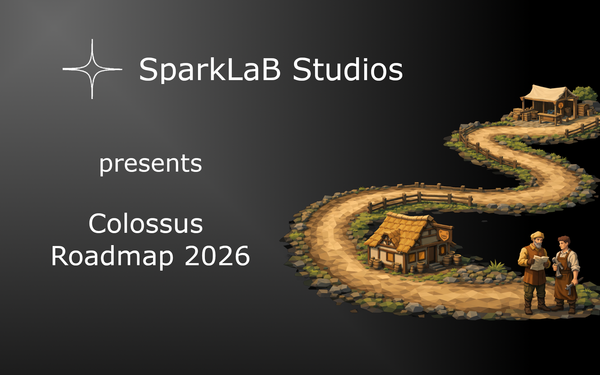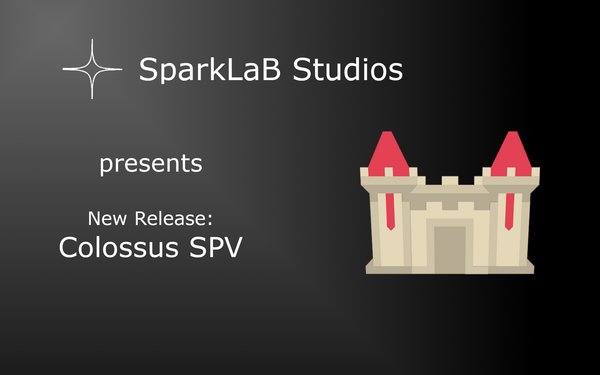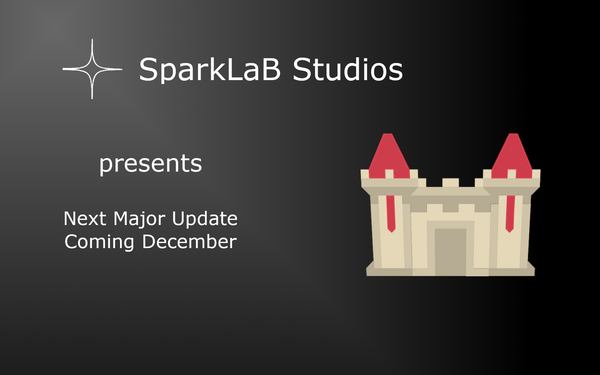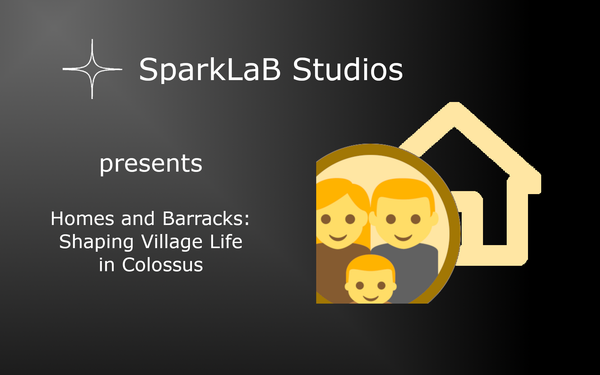Crafting Civilization: New Workshops for Your Village
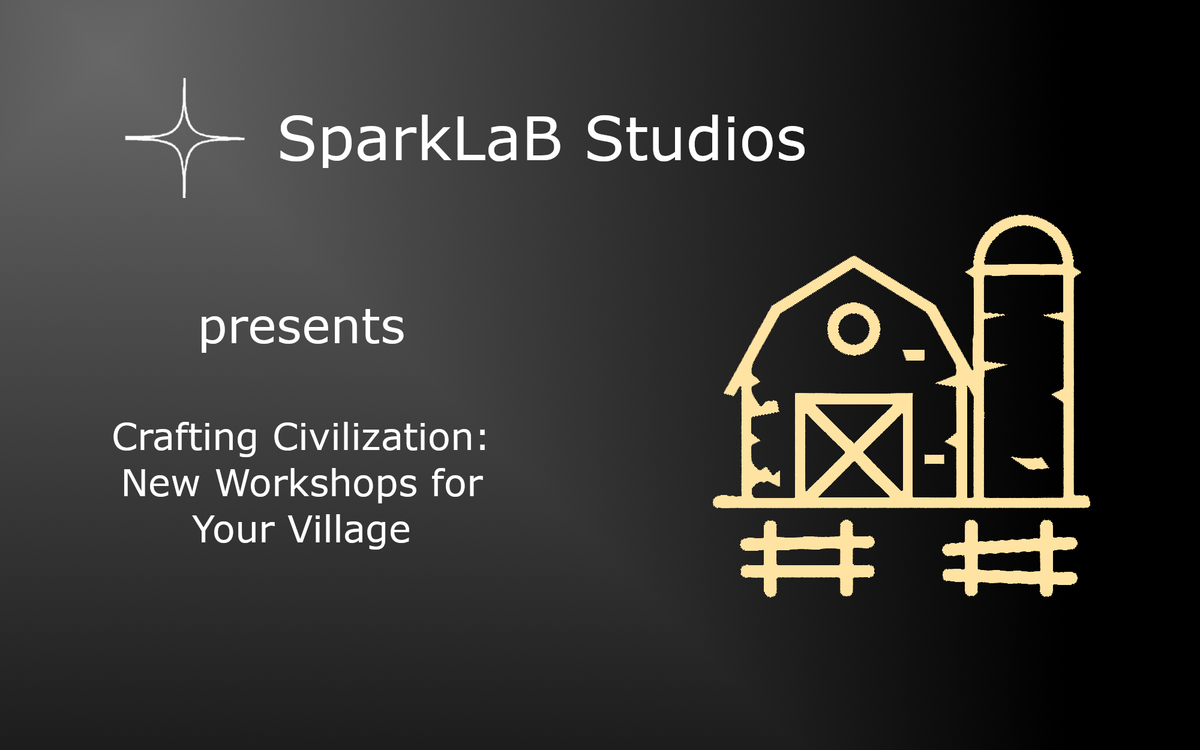
Today we want to take you deeper into the economy of Colossus by presenting our newest workshops, their input and output resources, and how they tie together in production lines that shape the lifeblood of your village. To better understand this, we distinguish between two categories of workshops: resource production and resource manufacturing.
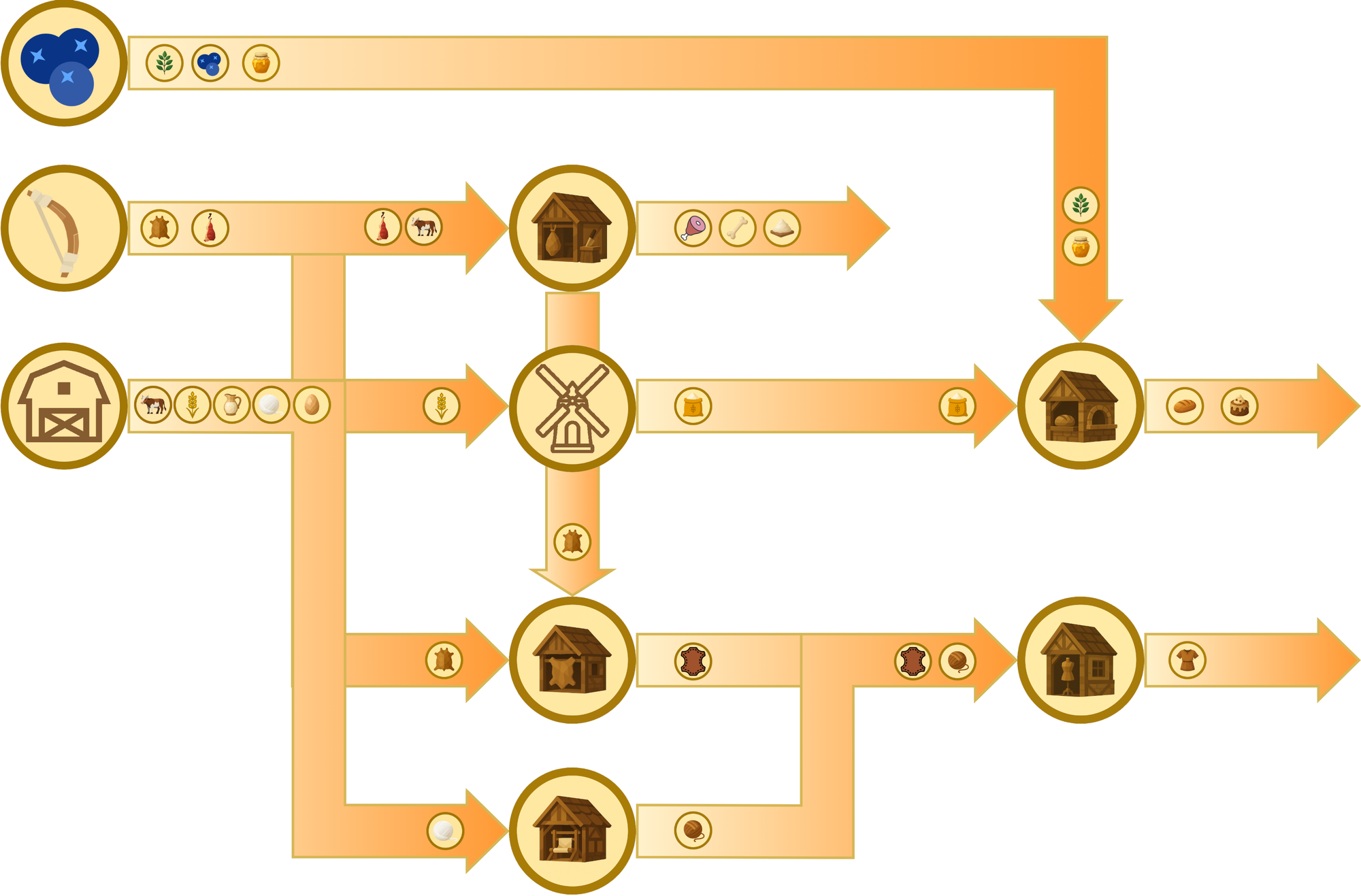
Resource Production – The Beginning of Every Supply Chain
Resource production workshops mark the very start of your village’s economy. They extract, gather, or generate raw resources directly from the environment. Examples include the lumberjack, who harvests wood, or the iron miner, who digs ore from the ground.
Our latest addition to this category is the farm. Unlike other producers, the farm is both versatile and central to village life. It provides not only food but also valuable materials such as wool. What makes the farm particularly strategic is the freedom it gives the player: you can decide which livestock to prioritize, or even neglect animals altogether to focus on pure agriculture. This decision doesn’t just shape your food supply—it directly influences which manufacturing workshops you can support later on
Resource Manufacturing – Turning Raw Goods Into Culture
Manufacturing workshops transform raw materials into refined goods that raise the standard of living in your settlement. The newest workshops in this category are:
- Butcher – processes livestock into meat and valuable byproducts.
- Mill – grinds wheat into flour, essential for baking.
- Bakery – turns flour and firewood into bread and other baked goods.
- Tannery – processes animal hides into leather.
- Weaver – spins wool into yarn.
- Tailor – combines leather and yarn to create clothing.
Each of these professions expands the capabilities of your settlement, producing resources that satisfy higher-level citizen needs. Goods such as clothing or fine baked products aren’t just luxuries—they represent cultural advancement and unlock entirely new social classes within your village.
The Importance of Byproducts
A new system we are introducing is the concept of byproducts. These are secondary resources created as a side effect of production. Through upgrades or improved techniques, your workshops will be able to recover and repurpose what was once considered waste.
For example, the mill traditionally receives wheat and produces flour. With an upgrade to improved sieving mechanics, the miller can now separate out coarse grains that would previously have been discarded. These can be reused as animal feed, turning waste into a valuable resource for cattle.
The butcher benefits from a similar system. With refined waste and sorting methods, more of the animal can be put to use. Instead of losing material, the butchery can now provide additional outputs such as bones, tallow, and hides. These byproducts feed directly into other production chains, ensuring that efficiency and sustainability play a real role in your village’s growth.
Work in Progress
Keep in mind that what we are showing you today is not yet final. The icons, resources, and even the production lines themselves are still under development. What remains constant, however, is our commitment to building an economy that feels alive—where every choice, every workshop, and every resource carries meaning for your settlement.

